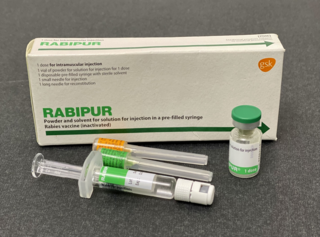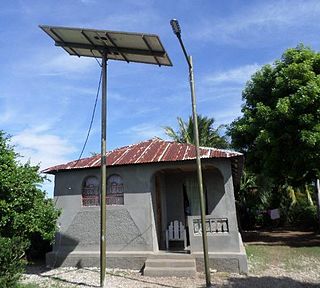Related Research Articles

Himachal Pradesh is a state in the northern part of India. Situated in the Western Himalayas, it is one of the thirteen mountain states and is characterized by an extreme landscape featuring several peaks and extensive river systems. Himachal Pradesh is the northernmost state of India and shares borders with the union territories of Jammu and Kashmir and Ladakh to the north, and the states of Punjab to the west, Haryana to the southwest, Uttarakhand to the southeast and a very narrow border with Uttar Pradesh to the south. The state also shares an international border to the east with the Tibet Autonomous Region in China. Himachal Pradesh is also known as Dev Bhoomi, meaning 'Land of Gods' and Veer Bhoomi which means 'Land of the Brave'.

Himachal Pradesh University (HPU) is an Indian public state university at Summer Hill in the state capital city Shimla. It is close to the vicinity of the Indian Institute of Advanced Study. It is wholly financed by the government of Himachal Pradesh and the University Grants Commission, New Delhi.

Shimla is the capital and the largest city of the northern Indian state of Himachal Pradesh. In 1864, Shimla was declared as the summer capital of British India. After independence, the city became the capital of East Punjab and was later made the capital city of Himachal Pradesh. It is the principal commercial, cultural and educational centre of the state.

Virbhadra Singh was an Indian politician who served 6 terms and 21 years as the 4th Chief Minister of Himachal Pradesh. A leader of the Indian National Congress party, he was elected 9 times as a Member of Legislative Assembly to the Himachal Pradesh Vidhan Sabha and 5 times as Member of Parliament to the Lok Sabha. Virbhadra Singh was popularly known by the honorific Raja Sahib. Singh holds the distinction of being the longest serving Chief Minister of Himachal Pradesh, holding the office from 1983 to 1990, from 1993 to 1998, from 2003 to 2007 and finally from 2012 to 2017, when he was succeeded by the BJP's Jai Ram Thakur. He was elected to the Lok Sabha in 1962, 1967, 1971, 1980 and 2009. Singh served as a Union Minister in the governments of Indira Gandhi and Manmohan Singh. At the time of his demise, he was serving as an MLA from Arki constituency.

All India Institute of Medical Sciences, New Delhi, also known as AIIMS Delhi, is a public medical research university and hospital in New Delhi, India. The institute is governed by the AIIMS Act, 1956 and operates autonomously under the Ministry of Health and Family Welfare.
Palampur is a hill station and a municipal corporation situated in the Kangra District in the Indian state of Himachal Pradesh. It is surrounded by pine forests and flanked by the Dhauladhar ranges. There are numerous streams flowing from the mountains to the plains, from Palampur. The combination of greenery, snowclad mountains and water gives Palampur a distinctive look.

Himachal Pradesh was under the direct control of the British colonial rule in the mid 19th century. Also, the state was the summer capital of India during the British colonial rule. Hence, the standard of education provided in the state has reached to a considerably high level. The state has several highly reputed educational institutions for higher studies.
The Indian Institute of Technology Mandi, Himachal Pradesh University (HPU), Indian Institute of Management Sirmaur and NIT Hamirpur are some of the pioneer institutions located in the state. The University Grants Commission (UGC) has allocated Rs 45 million to Himachal Pradesh University in the 10th plan which is an increase of nearly 70% over the ninth one. Dr. Yashwant Singh Parmar University of Horticulture and Forestry has gained a unique distinction not only in the nation but also in whole of Asia for imparting teaching, research and extension education in horticulture, forestry and allied disciplines. All india institute of medical sciences is established in bilaspur district in hp Indra Gandhi medical College shimla is one is most premium institute in medical sciences in North India

Postgraduate Institute of Medical Education and Research (PGIMER) is a public medical university in Chandigarh, India. It is an 'Institute of National Importance'. It has educational, medical research, and training facilities for its students including all specialties, super specialties and sub specialties. It is the leading tertiary care hospital of the northern India region and caters to patients from all over Punjab, Jammu and Kashmir, Himachal Pradesh, Uttarakhand, Haryana, Bihar and Uttar Pradesh. Apart from the clinical services, PGI also provides training in almost all disciplines of medicine including post graduate and post doctoral degrees, diplomas and fellowships. There are more than 50 such training courses in the institute. The 100-seat MBBS college is expected to start by 2025 at PGI's satellite centre in Sarangpur

The rabies vaccine is a vaccine used to prevent rabies. There are a number of rabies vaccines available that are both safe and effective. They can be used to prevent rabies before, and, for a period of time, after exposure to the rabies virus, which is commonly caused by a dog bite or a bat bite.

Rabies is a viral disease that causes encephalitis in humans and other mammals. It was historically referred to as hydrophobia due to the symptom of panic when presented with liquids to drink. Early symptoms can include fever and tingling at the site of exposure. These symptoms are followed by one or more of the following symptoms: nausea, vomiting, violent movements, uncontrolled excitement, fear of water, an inability to move parts of the body, confusion, and loss of consciousness. Once symptoms appear, the result is virtually always death, regardless of treatment. The time period between contracting the disease and the start of symptoms is usually one to three months but can vary from less than one week to more than one year. The time depends on the distance the virus must travel along peripheral nerves to reach the central nervous system.
Almost all human deaths caused by rabies occur in Asia and Africa. There are an estimated 59,000 human deaths annually from rabies worldwide.

In animals, Rabies is a viral zoonotic neuroinvasive disease which causes inflammation in the brain and is usually fatal. Rabies, caused by the rabies virus, primarily infects mammals. In the laboratory it has been found that birds can be infected, as well as cell cultures from birds, reptiles and insects. The brains of animals with rabies deteriorate. As a result, they tend to behave bizarrely and often aggressively, increasing the chances that they will bite another animal or a person and transmit the disease. Most cases of humans contracting the disease from infected animals are in developing nations. In 2010, an estimated 26,000 people died from rabies, down from 54,000 in 1990.

Jai Ram Thakur is an Indian politician, and was the Chief Minister of the state of Himachal Pradesh from 2017 to 2022. He is serving his sixth term as MLA in the Himachal Pradesh Legislative Assembly, winning continuously since 1998 and has previously served as a Cabinet Minister in the Bharatiya Janata Party Government of Himachal Pradesh. Thakur was the Minister of Rural Development and Panchayati Raj from 2009 to 2012. He is serving as Leader of opposition in current legislative assembly of the state.He is elected to Himachal Pradesh Legislative Assembly from Seraj Assembly constituency of Mandi district. He won his first election in the year 1998 from now delimited constituency of Chachiot (Seraj).

Subhash Palekar is an Indian agriculturist who practiced and wrote many books about Subhash Palekar Natural Farming (SPNF) Formerly ZBNF. Subhash Palekar was born in 1949 in a small village Belora in the Vidarbha region of Maharashtra in India, and he has an agricultural background. He practised Zero Budget Natural Farming without using pesticides to cultivate. He conducted many workshops all over India. He was awarded India's fourth highest civilian award the Padma Shri in 2016

Jagat Prakash Nadda is an Indian lawyer and politician who is currently serving as the 11th President of the Bharatiya Janata Party (BJP) 2020 and the member of the Rajya Sabha representing Himachal Pradesh since 2012. He was the BJP's working president from 2019 to 2020.Nadda also served as the Union Minister of Health and Family Welfare, Government of India in the Modi ministry from 2014 to 2019 and Parliamentary Board Secretary of Bharatiya Janata Party. Previously, he was the Minister of Forest, Environment, Science and Technology from 2007 to 2012 and the Ministry and the Minister of Health and Family Welfare and Parliamentary Affairs from 1998 to 2003 in the Dhumal ministry in the Himachal Pradesh Government.
D. S. Rana is an Indian nephrologist and the Chairman of the Department of Nephrology at Sir Ganga Ram Hospital, New Delhi, known for his proficiency in renal transplant procedures. Born in Dasmal, Hamirpur in the Indian state of Himachal Pradesh, he graduated in medicine from the Indira Gandhi Medical College, Shimla and did his advanced training in clinical nephrology at the Postgraduate Institute of Medical Education and Research, Chandigarh. He is an international scholar of the Cleveland Clinic, Ohio and is a member of the Board of Management of the Sir Ganga Ram Hospital. Parvati Education and Health Society, an organization founded by Rana operates a small 5-bedded hospital in his native village of Dasmal for the rural poor. The Government of India awarded him the fourth highest civilian honour of the Padma Shri in 2009, for his contributions to Medicine. He is the first Himachal Pradesh resident awarded Padma Shri.

Rabies is a viral disease that exists in Haiti and throughout the world. It often causes fatal inflammation of the brain in humans and other mammals, such as dogs and mongooses in Haiti. The term "rabies" is derived from a Latin word that means "to rage"; rabid animals sometimes appear to be angry. Early symptoms can include fever and tingling at the site of exposure, followed by one or more of the following symptoms: violent movements, uncontrolled excitement, fear of water, an inability to move parts of the body, confusion, and loss of consciousness. Once symptoms appear, death is nearly always the outcome. The time period between contracting the disease and showing symptoms is usually one to three months; however, this time period can vary from less than a week to more than a year. The time between contraction and the onset of symptoms is dependent on the distance the virus must travel to reach the central nervous system.
The All India Institutes of Medical Sciences (AIIMS) is a group of autonomous government public medical universities of higher education under the jurisdiction of Ministry of Health and Family Welfare, Government of India. These institutes have been declared by an Act of Parliament as Institutes of National Importance. AIIMS New Delhi, the forerunner institute, was established in 1956. Since then, 24 more institutes were announced. As of January 2023, twenty institutes are operating and four more are expected to become operational until 2025. Proposals were made for six more AIIMS. It is considered as pioneer health institution of South Asia.
Shriniwas Joshi is a columnist, theatre artist, and retired civil servant from Himachal Pradesh, India. As a columnist, Joshi is especially known for his column 'Vignettes' in the Indian English daily The Tribune, through which he has documented people, history, places, and idiosyncratic things all across Himachal Pradesh. As a theatre figure, he has been associated for decades with Shimla's historic Gaiety Theatre, for which he has written, acted in, and directed a number of plays. As a retired civil servant, Joshi has been active in various civic causes in Shimla, including heritage conservation, environmental protection, and the promotion of arts.
References
- ↑ "Dr Omesh Kumar Bharti gets Padam Shri for pioneering research on rabid dog bite". Thenewshimachal.com. 28 January 2019. Retrieved 9 February 2019.
- ↑ "This Himachal Pradesh doctor made rabies treatment cheap". The New Indian Express . Retrieved 9 February 2019.[ dead link ]
- 1 2 3 4 "Himachali Doctor finds a perfect cure for Rabies. Gets a Green Signal from W.H.O." BookOfAchievers.com. Retrieved 9 February 2019.
- ↑ "About SHE". She-india.org. Retrieved 25 February 2019.
- ↑ "Health Department – State Institute of Health And family Welfare". Sihfwshimla.com. Retrieved 25 February 2019.
- ↑ "CPWD participates in Republic Day, displaying flower tableaux during Parade". Devdiscourse.com. Retrieved 9 February 2019.